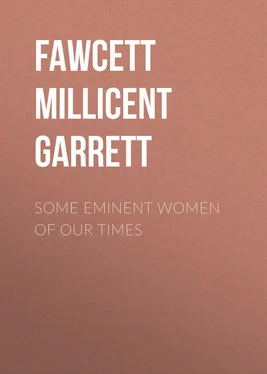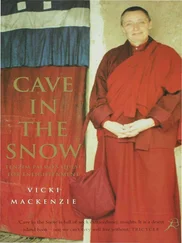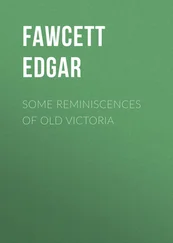Millicent Fawcett - Some Eminent Women of Our Times
Здесь есть возможность читать онлайн «Millicent Fawcett - Some Eminent Women of Our Times» — ознакомительный отрывок электронной книги совершенно бесплатно, а после прочтения отрывка купить полную версию. В некоторых случаях можно слушать аудио, скачать через торрент в формате fb2 и присутствует краткое содержание. Жанр: foreign_antique, foreign_prose, на английском языке. Описание произведения, (предисловие) а так же отзывы посетителей доступны на портале библиотеки ЛибКат.
- Название:Some Eminent Women of Our Times
- Автор:
- Жанр:
- Год:неизвестен
- ISBN:нет данных
- Рейтинг книги:3 / 5. Голосов: 1
-
Избранное:Добавить в избранное
- Отзывы:
-
Ваша оценка:
- 60
- 1
- 2
- 3
- 4
- 5
Some Eminent Women of Our Times: краткое содержание, описание и аннотация
Предлагаем к чтению аннотацию, описание, краткое содержание или предисловие (зависит от того, что написал сам автор книги «Some Eminent Women of Our Times»). Если вы не нашли необходимую информацию о книге — напишите в комментариях, мы постараемся отыскать её.
Some Eminent Women of Our Times — читать онлайн ознакомительный отрывок
Ниже представлен текст книги, разбитый по страницам. Система сохранения места последней прочитанной страницы, позволяет с удобством читать онлайн бесплатно книгу «Some Eminent Women of Our Times», без необходимости каждый раз заново искать на чём Вы остановились. Поставьте закладку, и сможете в любой момент перейти на страницу, на которой закончили чтение.
Интервал:
Закладка:
It must be remembered that when Mary Carpenter first began to exert herself for the benefit of neglected children, there were no reformatory or industrial schools, except those which had been established by the voluntary efforts of philanthropists like herself. Aided by a band of fellow-workers and wise advisers, chief of whom were Mr. Matthew Davenport Hill, the Recorder of Birmingham, and his daughters; Dr. Tuckerman, of the U.S.A.; Mr. Russell Scott, of Bath; Mr. Sheriff Watson, of Aberdeen; and Lady Byron, Mary Carpenter set to work to establish a voluntary reformatory school at Kingswood, near Bristol. Her principle was that by surrounding children, who would otherwise be criminals, with all the influences of a wholesome home life, there was a better chance than by any other course, of reclaiming these children, and making them useful members of society. To herd children together in large, unhomelike institutions, was always, in Mary Carpenter’s view, undesirable; the effect on character is bad; the more perfectly such places are managed, the more nearly do the children in them become part of a huge machine, and the less are their faculties, as responsible human beings, developed. Over and over again, in books, in addresses, and by the example of the institutions which she managed herself, Mary Carpenter reiterated the lesson that if a child is to be rescued and reformed, he must be placed in a family; and that where it is necessary, for the good of society, to separate children on account of their own viciousness, or that of their parents, from their own homes, the institutions receiving them should be based on the family ideal so far as possible. With this end in view, the children at Kingswood were surrounded by as many home influences as possible. Miss Carpenter at one time thought of living there herself, but this scheme was given up, in deference to her mother’s wishes. She was, however, a constant visitor, and a little room, which had once been John Wesley’s study, was fitted up as a resting-place for her. On a pane of one of the windows of this room her predecessor had written the words, “God is here.” She taught the children herself, and provided them with rabbits, fowls, and pigs, the care of which she felt would exercise a humanising influence upon them. The whole discipline of the place was directed by her; one of her chief difficulties was to get a staff of assistants with sufficient faith in her methods to give them an honest trial. She did not believe in a physical force morality. “We must not attempt,” she wrote, “to break the will, but to train it to govern itself wisely; and it must be our great aim to call out the good, which exists even in the most degraded, and make it conquer the bad.” After a year’s work at Kingswood in this spirit, she writes very hopefully of the improvement already visible in the sixteen boys and thirteen girls in her charge. The boys could be trusted to go into Bristol on messages, and even “thievish girls” could be sent out to shops with money, which they never thought of appropriating.
But although the success of the institution was so gratifying, it had no legal sanction; it had consequently no power to deal with runaways, and the great mass of juvenile delinquents were still sentenced to prisons, from which they emerged, like the man into whom seven devils entered, in a state far worse than their first. Mary Carpenter’s work was not only to prove the success of her methods of dealing with young criminals, but, secondly, to convince the Government that the established system was a bad one, and thirdly, and most difficult of all, to get them to legislate on the subject. A long history of her efforts to obtain satisfactory legislation for children of the perishing and dangerous classes is given in her life, written by her nephew, Mr. J. Estlin Carpenter. It is enough here to say that in the House of Lords, Lord Shaftesbury, and in the House of Commons, Sir Stafford Northcote and Mr. Adderley (afterwards Lord Iddesleigh and Lord Norton), were her chief supporters. Mr. Lowe (now Lord Sherbrooke) was her chief opposer. Liberal as she was, born and bred, as well as by heart’s conviction, she confessed with some feeling of shame, that the Tories “are best in this work.” At last, in 1854, her efforts were crowned with success, and the Royal Assent was given to the Youthful Offenders Bill, which authorised the establishment of reformatory schools, under the sanction of the Home Secretary.
It is a striking proof of the change that has taken place in the sphere and social status of women, that Mary Carpenter, in the first half of her active life, suffered what can be called nothing less than anguish, from any effort which demanded from herself the least departure from absolute privacy. When she began her work of convincing the public and Parliament of the principles which ought to govern the education of juvenile criminals, her nephew writes that to have spoken at a conference in the presence of gentlemen, she would have felt, at that time (1851), as tantamount to unsexing herself. When she was called upon to give evidence before a Select Committee of the House of Commons in 1852, her profound personal timidity made the occasion a painful ordeal to her, which she was only enabled to support by the consciousness of the needs of the children. Surely this excessive timidity arises from morbid self-consciousness, rather than from true womanly modesty. Mary Carpenter was enabled, by increasing absorption in her work, to throw it off, and for her work’s sake she became able to speak in public with ease and self-possession. She frequently spoke and read papers at the Social Science Congresses, and at meetings of the British Association. A letter from her brother Philip describes one of these occasions, at the meeting in 1860 of the British Association at Oxford, when her subject was, “Educational Help from the Government Grant to the Destitute and Neglected Children of Great Britain.”
“July – , 1860.“There was a great gathering of celebrities to hear her. It was in one of the ancient schools or lecture-halls, which was crowded, evidently not by the curious, but by those who really wanted to know what she had to say. She stood up and read in her usual clear voice and expressive enunciation… It was, I suppose, the first time a woman’s voice had read a lecture there before dignitaries of learning and the Church; but as there was not the slightest affectation on the one hand, so on the other hand there was neither a scorn nor an etiquettish politeness; but they all listened to her as they would have listened to Dr. Rae about Franklin, only with the additional feeling (expressed by the President, Mr. Nassau Senior) that it was a matter of heart and duty, as well as head.”
As years passed by, her work and responsibilities rapidly increased. It is astonishing to read of the number of institutions, from ragged schools upwards, of which she was practically the head and chief. Her thoroughly practical and business-like methods of work, as well as her obvious self-devotion and earnestness, ensured to her a large share of public confidence and esteem, and although she was a Unitarian, sectarian prejudices did not often thwart her usefulness. Two instances to the contrary must, however, be given. In 1856 the Somersetshire magistrates at the Quarter Sessions at Wells refused to sanction the Girls’ Reformatory, established by Miss Carpenter at the Red Lodge, Bristol, on account of the religious opinions of its foundress. They appeared to have forgotten that “Pure religion and undefiled before God and the Father is this, to visit the fatherless and widows in their affliction, and to keep himself unspotted from the world.” A more deeply and truly religious spirit than Mary Carpenter’s never existed; but that is the last thing that sectarian rancour takes heed of. The other little bit of persecution she met with was regarded by herself and her friends as something between a compliment and a joke. In 1864 she wrote a book entitled Our Convicts . The work was received with commendation by jurists in France, Germany, and the United States, but the crowning honour of all was that the Pope placed her and her books on the “Index Expurgatorius.” After this she felt that if she had lived in earlier times she might have aspired to the crown of martyrdom.
Читать дальшеИнтервал:
Закладка:
Похожие книги на «Some Eminent Women of Our Times»
Представляем Вашему вниманию похожие книги на «Some Eminent Women of Our Times» списком для выбора. Мы отобрали схожую по названию и смыслу литературу в надежде предоставить читателям больше вариантов отыскать новые, интересные, ещё непрочитанные произведения.
Обсуждение, отзывы о книге «Some Eminent Women of Our Times» и просто собственные мнения читателей. Оставьте ваши комментарии, напишите, что Вы думаете о произведении, его смысле или главных героях. Укажите что конкретно понравилось, а что нет, и почему Вы так считаете.




![Корнелл Вулрич - Murder at Mother’s Knee [= Something That Happened in Our House]](/books/398097/kornell-vulrich-murder-at-mother-s-knee-somethin-thumb.webp)







